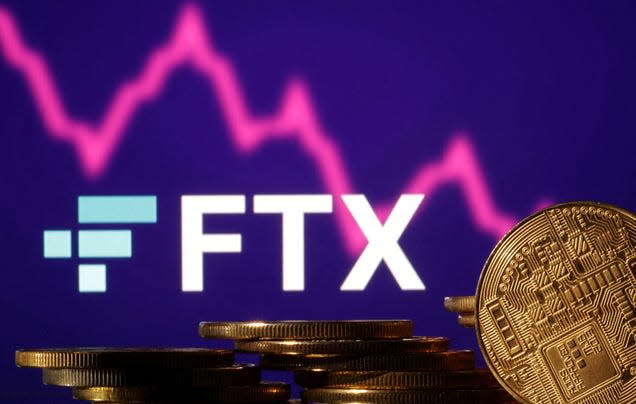Examining the African Crypto Ecosystem as the Ripple Effects of the FTX Crash Continue to Rage across the Continent

Cryptocurrency adoption in Africa continues to deepen as small retail payments in the region power exceptional crypto adoption and usage, with the region conducting the world’s highest proportion (80%) of crypto retail payments of less than $1,000, according to a recent report by blockchain data firm Chainalysis,
Peer-to-peer transactions are also more common in Sub-Saharan Africa than anywhere else in the world, according to the report. Africa’s peer-to-peer transactions dwarf those of Central and Southern Asia and Oceania, the region with the second-highest volumes in that category, accounting for approximately 6% of total crypto transaction volume.
According to the report, many Africans have integrated cryptocurrency into their daily lives. Remittances and commercial transactions, in addition to retail transactions, have been key drivers of Africa’s high adoption and usage rates.
“Crypto usage is driven by everyday necessity, rather than speculation by the already wealthy… particularly in countries where the values of local fiat currencies are falling, as we’ve seen in Nigeria and Kenya,” according to the report.
Will FTX Collapsed Leave African Crypto Ecosystem in One Piece?
Although layoffs in the technology sector have been common for some time now as a result of the harsh economic climate and downturn exacerbated by the Russo-Ukraine war and crippling inflation in global economies. Since the FTX filed for bankruptcy early this month, the African cryptocurrency ecosystem appears to be in disarray, as Africa-focused cryptocurrency exchange, Quidax, laid off 20% of its staff just two weeks after the Nigerian web3 startup, Nestcoin, announced the layoff of some employees for similar reasons. Nestcoin, a one-year-old cryptocurrency, held assets (cash and stablecoins) in the beleaguered crypto exchange to cover operational costs.
Furthermore, Lazerpay, a Nigerian crypto payment gateway startup, has joined the growing number of African Crypto startups that have been hardest hit, according to its founder and CEO, Njoku Emmanuel, in a Twit. According to the 19-year-old CEO, the layoff was not caused by the FTX debacle, the startup’s customers’ funds are safe, and the company will continue to process payments as usual. He went on to say that the startup had been experiencing financial difficulties since its “proposed lead investor abruptly pulled out resources” earlier this year.

Market Reactions to the FTX Collapsed
According to CoinMarketCap data, the total capitalization of the crypto dropped from $1.02 trillion to $845 billion in the weeks following the FTX crash, a loss of approximately 17%.
During the massive sell-offs, Bitcoin fell below $16,500 for the first time in two years. Furthermore, On-chain data from Coinglass shows that market liquidity has been drying up recently, which could be a cause for concern in the future.
To make matters worse, investors have lost faith in the institutions and exchanges that hold their funds, and as a result, they have withdrawn over $3 billion in Bitcoin from exchanges.
An estimated 190,000 Bitcoin were withdrawn from exchanges in the seven days since news of FTX’s liquidity crisis broke, according to Coinglass data. At the current price of Bitcoin, the 190,000 BTC is worth approximately $3 billion.
Why Africa is still the Market to Beat
Even though the Chainalysis report depicts a continent with the lowest cryptocurrency transaction volume in the world ($100.6 billion in on-chain volume received between July 2021 and June 2022). However, a cursory investigation into the report reveals two things: first, a very diverse region with varying usage and adoption rates, and second, a genuine need for crypto.
The Chainalysis report includes a link to the Global Crypto Adoption Index, which compares countries like Burkina Faso and Malawi to others in Africa like Nigeria and Kenya.
Burkina Faso and Malawi were ranked 133 and 137, respectively, out of 146 countries, while Nigeria and Kenya were ranked 11 and 19, respectively. This broad range demonstrates the diversity of cryptocurrency usage and adoption across the African continent.
Chainalysis equally contrasts wealthy Western countries that use cryptocurrency to increase wealth with impoverished African countries that use cryptocurrency to preserve and build wealth in the face of adverse economic conditions.
“In Sub-Saharan Africa, we don’t have big, institutional-level traders,” Adedeji Owonibi, founder of Nigeria-based blockchain consulting firm and product studio Convexity, told Chainalysis in an interview. “Retailers are driving the market here.” Nigeria has a large number of highly educated young graduates with high unemployment rates and no available jobs; cryptocurrency is a lifeline for them. It’s a way for them to feed their family.”
Africa has better Opportunities for Crypto Growth

A market where cryptocurrency is integrated into daily life may present unique opportunities for entrepreneurs and startups. According to the report, retail usage remains stable or even increases in the face of a bear market.
“The number of small retail transfers increased beginning with the onset of the bear market in May,” according to the report.
Startups that can facilitate retail, commercial, and peer-to-peer transactions appear to have a good chance of success in Africa. According to Chainalysis, remittance user growth rates for Paxful, a popular peer-to-peer exchange, are as high as 55% in Nigeria (Paxful’s largest market) and 140% in Kenya.
Respites
Despite Binance announcing an Industry Recovery Initiative, a $1 billion fund to assist affected crypto companies in the aftermath of the FTX collapse, which sent shockwaves through the entire crypto industry, more crypto exchanges are expected to fail. And this has reawakened deep-seated fears in the hearts of crypto enthusiasts across the continent, just as it did in 2011 when Bitcoin fell from $32 to $0.01 in a matter of days, and the crypto winter of 2017 should still be fresh in the minds of keen observers. After reaching $20,000 in December 2017, it lost more than 70% of its market value and fell to $3200 in 2018.
Although the FTX crash has far-reaching consequences given the timing of the unfortunate occurrence, there was a Terra crash earlier this year that sent investors around the world into a panic, but here we are after six months, with the technology behind the blockchain still standing strong. Witnessing people write off cryptocurrency again over what is simply a natural phase in the development process of this nascent sector only shows how prone the human mind is to forgetfulness and its tendency to shy away from risks.
Despite these temporary setbacks, numbers suggest a favorable disposition to the adoption of blockchain technology across Africa, owing to its youthful population, increase internet penetration, access to smart devices, and increase in knowledge, hence once the sector becomes well-established and entrenched, the likelihood of firms failing decreases significantly over time and the full potential and benefit of blockchain technology will become visible to all.
